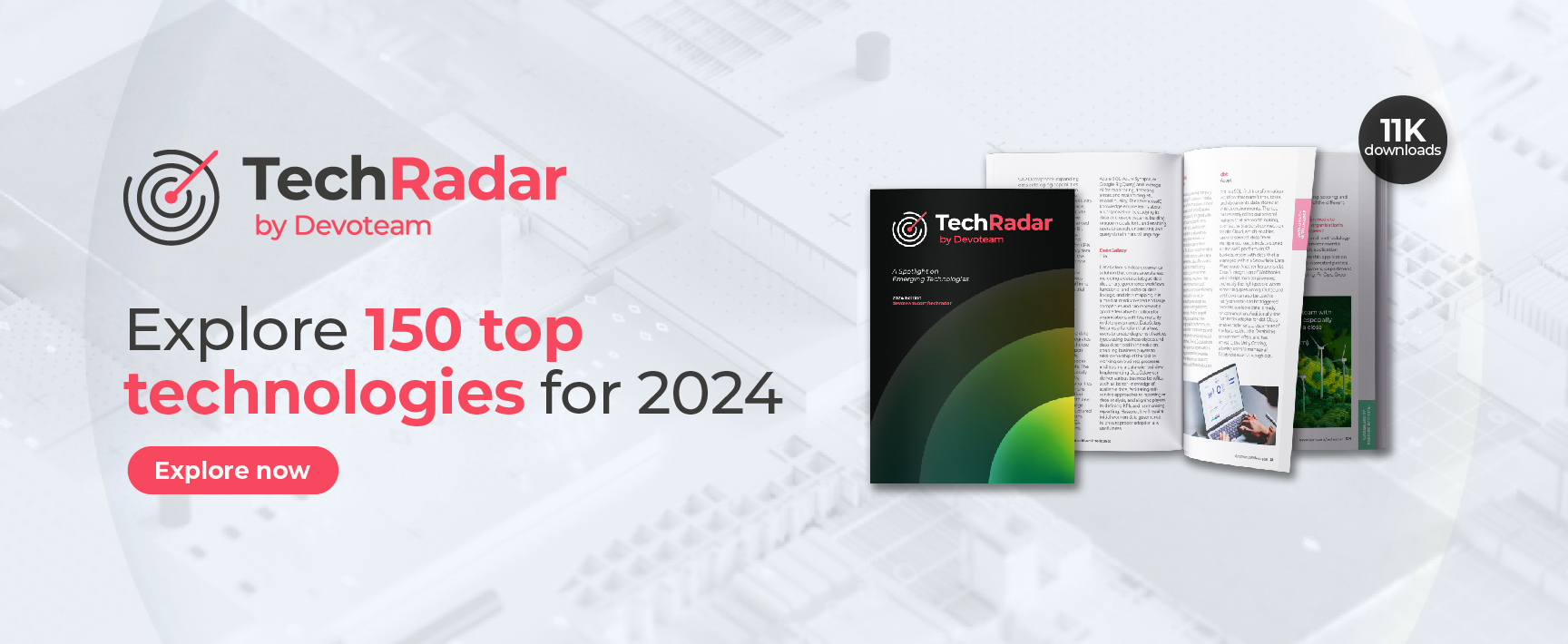Artificial Intelligence (AI) has quickly risen to the forefront of technological innovation as the fundamental driving force behind developments such as machine learning (ML), analytics, generative AI, and intelligent automation. As the use cases for these technologies continue to grow, so too does the number of enterprises that are shifting focus to the implementation of this as a mechanism for operational transformation. And recent findings from McKinsey serve as confirmation of this shift, indicating a twofold increase in AI adoption since 2017.
Now, the once seemingly distant concept of “Everyday AI” is rapidly transitioning into a fully realised reality, as AI becomes more integrated within daily business practices – and technology companies like Dataiku are stepping up to help enterprises leverage the tech to reach new heights.
What is Dataiku?
Dataiku DSS (Data Science Studio), featured on TechRadar by Devoteam, is a collaborative data science software platform with French roots that consolidates ML and analytics to provide customers with a comprehensive platform for developing and deploying AI applications that prioritise data-driven decision-making on a fundamental level. Distinguished by its highly integrated and user-friendly design, the DSS platform is highly accessible to both seasoned and entry-level data scientists. Its ergonomic features enable users to effortlessly create models in just a few clicks, while simultaneously streamlining the entire processing chain. The key capabilities of the platform include data preparation, visualisation, machine learning, DataOps, MLOps, analytic apps, collaboration, governance, explainability, and architecture, while plug-ins enable additional capabilities. Today, Over 500 companies use Dataiku, including many leading global enterprises, including the telecommunications giant Orange, which chose Dataiku as the solution to elevate its data science and ML initiatives.
What are the top 10 use cases of Dataiku?
- Model Deployment: Once trained, DSS enables users to seamlessly integrate models into production environments, including integrating them with business applications and systems.
- Time Series Analysis: For datasets featuring temporal components, Dataiku provides time series analysis, forecasting, and anomaly detection, which are essential for applications like demand prediction and fraud detection.
- Predictive Maintenance: Within industrial contexts, Dataiku can predict machinery and equipment failure, enabling proactive maintenance strategies that reduce downtime and cost overall.
- Feature Engineering: Enhance model performance by crafting new features from existing data. Dataiku supports techniques like scaling, encoding categorical variables, and generating derived features.
- Customer Segmentation and Personalisation: Tailor marketing efforts and customer experiences by utilising Dataiku to segment customers based on behaviour, demographics, or other variables.
- Collaborative Data Science: Daitaiku can further help foster cross-functional teamwork and knowledge sharing by empowering teams to collaborate on data projects, share insights, and collectively tackle analysis and modeling tasks.
- Automated Machine Learning (AutoML): Users can automate feature selection, model training, and hyperparameter tuning with Dataiku’s AutoML capabilities, which helps simplify the process of building effective models.
- Exploratory Data Analysis (EDA): Dataiku’s interactive visualisation capabilities, enable users to visually explore data characteristics to uncover patterns, understand relationships, and gain insights.
- Data Preparation and Cleaning: Dataiku provides tools for data wrangling, enrichment, and feature engineering, making it easy to clean, transform, and prepare data from diverse sources.
- Machine Learning Model Development: Dataiku facilitates the creation of machine learning models using various algorithms, offering features for model training, hyperparameter tuning, and evaluation.
It’s important to highlight that Dataiku’s versatility extends beyond these use cases, allowing organisations to tailor the platform to their specific needs. This adaptability renders Dataiku a powerful tool for elevating data-driven decision-making and fostering innovation across diverse industries.
How does Dataiku compare to other competitors in the market?
Dataiku is just one of a myriad of market-leading data science platforms, therefore understanding the key differentiators of each is paramount to choosing the right solution for your business. That said, let’s dive into a brief overview of some of the top data science platforms on the market today:
- Dataiku stands out as a cross-platform desktop application, offering a comprehensive suite of tools, including notebooks (akin to Jupyter Notebook), workflow management (akin to Apache Airflow), and automated machine learning. Rather than simply integration, Dataiku aims to provide an all-in-one solution that can replace existing tools.
- Alteryx is positioned as an analytics-focused platform. Although Alteryx is comparable to dashboarding solutions like Tableau, it goes a step further by including integrated machine-learning components. It specialises in providing no-code alternatives to traditionally code-dependent tasks in machine learning and advanced analytics.
- Databricks is mainly a managed Apache Spark environment, that also includes integrations with tools like MLFlow for seamless workflow orchestration.
- Knime is functionally similar to Alteryx, however, it offers an open-source self-hosted option and its paid version is cheaper. Additionally, it features a modular design that integrates machine learning components and analytics, offering flexibility in workflow creation.
- Datarobot is centered around automated machine learning. Users upload data in a spreadsheet-like format, and then Datarobot automatically identifies optimal models and parameters to predict specific columns.
- Sagemaker is focused on abstracting away the complexities of infrastructure needed to train and serve models. Recently the platform expanded its offering to include Autopilot (similar to Datarobot) and Sagemaker Studio (akin to Dataiku), to provide a more holistic environment for diverse machine-learning tasks.
Is Dataiku the right solution for your business?
Finding the right data solution for your business depends on several factors such as business objectives, team knowledge & expertise, budget, data requirements, and more. One standout feature of Dataiku in particular is its user-friendly design, making it accessible to teams with varying technical backgrounds. While a foundational level of technical knowledge is beneficial, it doesn’t necessitate a team primarily composed of software engineers. This flexibility in team composition is advantageous for businesses aiming to leverage data science capabilities without an exclusive reliance on highly technical roles.
Dataiku’s core strength, however, lies in offering a predefined, all-in-one solution, making it an attractive option for businesses seeking a comprehensive platform that consolidates various data science functionalities. This is especially beneficial for enterprises that may not have the resources or inclination to manage multiple tools for different stages of the data science workflow. With Dataiku, the need for extensive tool integration is minimised, simplifying the overall data processing operation and enabling a more direct throughline to actionable, data-driven insights.
5 Key Takeaways:
- AI Driving Technological Frontiers: Artificial Intelligence (AI) stands at the forefront of technological innovations, impacting machine learning, analytics, generative AI, and intelligent automation, with AI adoption doubling since 2017 according to one McKinsey report.
- Dataiku’s Holistic Data Processing: Dataiku’s comprehensive suite of tools covers data preparation, visualisation, machine learning, DataOps, MLOps, analytic apps, collaboration, governance, explainability, and architecture, offering a holistic approach to data processing.
- Dataiku Use Cases: Dataiku’s top 10 use cases span model deployment, time series analysis, predictive maintenance, feature engineering, customer segmentation, collaborative data science, AutoML, EDA, data preparation, and machine learning model development.
- Dataiku’s Predefined All-in-One Strength: Dataiku’s core strength lies in offering a predefined, all-in-one solution, simplifying data processing, and minimising the need for extensive tool integration.
- Dataiku’s User-Friendly Versatility: Dataiku’s versatility, coupled with its user-friendly design, makes it an accessible and powerful tool for varied data science teams, irrespective of their technical composition.
How can I learn more?
This article is part of a larger series focusing on the technologies and topics found in the first edition of the TechRadar by Devoteam . To see what our community of tech leaders said about the current position of Dataiku in the market, take a look at the most recent edition of the TechRadar by Devoteam.

